Statewide survey most comprehensive to date on lost revenue and extra costs
The COVID-19 pandemic has had grave economic consequences on Pennsylvania’s nonprofit sector, a new survey of about 800 organizations shows.
The Impacts of COVID-19 on Pennsylvania Nonprofits study reports revenue losses of $612 million and new operating expenses of $95.3 million, for a total of $708 million. Based on the data collected from 800[JP2] nonprofits – 2% of the state’s total – the actual economic toll to organizations ranging from child care centers to arts organizations balloons to billions of dollars.
The survey, conducted by the national community and economic development firm Fourth Economy and coordinated through a partnership of The Pittsburgh Foundation, its affiliate, The Community Foundation of Westmoreland County, The Forbes Funds, the Pennsylvania Association of Nonprofit Organizations (PANO) and the United Way of Southwestern Pennsylvania, is the most comprehensive data gathered about the economic impact of COVID on the nonprofit sector to date. Regional and county-specific data is available for review online. (regional media contacts are provided below).
Of special significance to the coalition are the 290 human services organizations in the survey – representing 19% of survey respondents. That sub-sector reported increased costs of $64 million and revenue decreases of $255 million. Those figures represent the financial impact on just 7% of total human services deliverers in Pennsylvania.
“Our state’s human services safety net relies heavily upon this part of the nonprofit sector to function and that includes government programs. That alone is significant, but the survey findings on the nonprofit sector overall should sound four alarms about the threat to the state’s economy and general quality of life,” said Lisa Schroeder, president and CEO of The Pittsburgh Foundation, which funded and organized the coalition. “It is our hope that these findings are a call to arms to state and federal office holders to support dedicated COVID relief for the sector. Our ability to recover from this pandemic is very much dependent on the ability of nonprofits to continue their missions.”
The survey ran from Aug. 3 to 28 and results were analyzed by Fourth Economy. The coalition partners provided guidance and encouraged nonprofits across the state to respond.
A survey earlier this year by United Way of Pennsylvania found that 77% of Pennsylvania households have savings to cover one month or less of household expenses. Many will turn to the Commonwealth’s nonprofit safety net for assistance.
“That means millions of Pennsylvanians are turning to human service agencies, which are then faced with increased costs and reduced funding to meet this crushing need,” said Bobbi Watt Geer, president and CEO of the United Way of Southwestern Pennsylvania. “This new survey gives us a clear window into the challenges that lie ahead. It is essential to understand the scope of the strain on nonprofits, particularly the human services system, so that we can develop appropriate policies and support for agencies that will help us recover from the pandemic.”
Small nonprofits faced the most significant impacts. Nonprofits with budgets under $100,000 reported average revenue losses and increased expenses of -47%, nearly half their budgets, as compared to -26% for mid-size nonprofits with budgets from $501,000 to $2.5 million. By comparison, the largest nonprofits, those with budgets over $10 million, reported average losses and increased expenses of -7%, still significant but much more manageable in achieving recovery.
Anne L. Gingerich, Executive Director of PANO, said the report provides solid evidence of a nonprofit sector in trouble, and that does not bode well for the overall economy.
“If nonprofits close, more individuals will look to government as their safety net, raising costs for all of us. We must have more nonprofit-designated funding, distributed as efficiently as possible,” said Gingerich, “and we need innovative collaboration among nonprofits, businesses and government.”
The survey supports a broader statewide coalition effort to have legislators pass bills that will dedicate a portion of the state’s allotment of $1.3 billion in CARES Act funding to the nonprofit sector – Senate Bill 1254 and House Bill 2740.
Previously, The nonprofit sector has had to compete with for-profit business for funding through federal CARES Act programs. The study team found that at least $35 million in operating costs reported are not eligible for CARES Act funding.
The proposed legislation would establish the NEEDS (Nonprofit Economic Emergency Delivery System) Grants Program to provide funding to Pennsylvania’s statewide network of 8,500 human services nonprofits that are key determiners of basic quality of life in communities.
In announcing the survey results, Schroeder pointed to the data as a convincing and well-documented first-look at degree of harm inflicted on nonprofits through the public health and economic crises brought on by COVID. “But this is a preliminary study, and it makes a powerful case for a more in-depth investigation, so that we understand the points of greatest stress in the sector.”
Other key data reports include:
- Nine out of 10 nonprofits reported some negative employment impacts.
- Nonprofits estimate that 25% of the employees will experience layoffs or pay reductions by the end of the year.
- 23% report increased demand for services.
- 36% report more clients.
- 37% report reduced or suspended services.
- 48% report fewer clients.
- 45% report event cancelations or delays.








